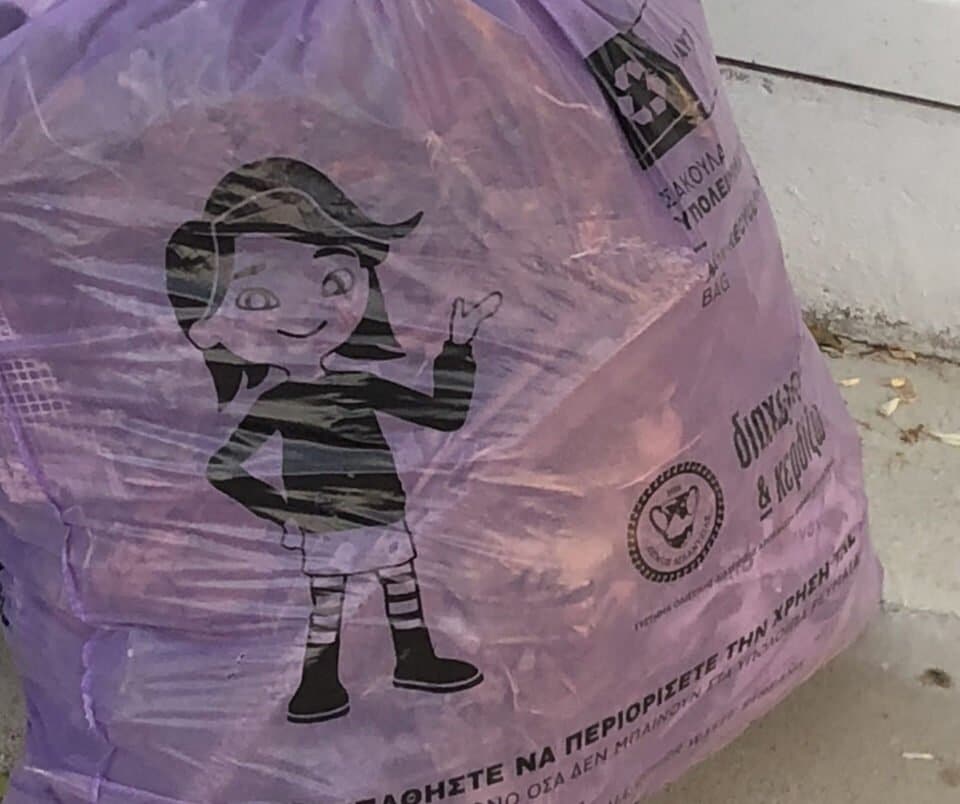Aglandjia Mayor Andreas Constantinou on Friday criticised the state for failing to promote the pay-as-you-throw (PAYT) waste scheme, for which his municipality was a pioneer.
“Aglandjia is being punished for being the most sustainable municipality on the island,” Constantinou told CyBC, blaming the union of municipalities and the agriculture ministry for a “lack of political will” and their failure to implement the scheme nationwide.
Residents of Aglandjia recently complained to the Cyprus Mail after receiving letters instructing them to pay an annual €100 fee and collect a packet of prepaid purple bags designated for non-recyclable waste – bags they say they do not need or use.
Many said they are being forced to purchase more bags than they require.
Constantinou explained that the municipal council’s decision to adopt the PAYT scheme was made before the local government restructuring. While he acknowledged that environmentally conscious residents may be overpaying by around €25, he argued that Aglandjia’s total fee is still half that of neighbouring municipalities that have not adopted the scheme.
He cited Ayios Dhometios, Engomi, and Nicosia, where residents pay an annual waste fee of €216.
“At the same time, we face the problem of residents who avoid buying the bags altogether by dumping their rubbish in neighbouring municipalities,” Constantinou said.
He noted that since other municipalities have delayed implementing PAYT, Aglandjia, as the lone adopter, is losing revenue as some residents “cheat the system” by disposing of their garbage elsewhere.
“The scheme simply cannot work if it is only in place in a single municipality,” Constatinou said. The mayor added that he did not foresee an island wide roll out of the scheme happening within a year’s time.
“The system didn’t fail, if others had followed suit, it would have been exceptionally beneficial,” the mayor said, adding that the volume of unrecyclable waste was certainly reduced by 50 per cent, when the scheme was followed, with consequent reductions in costs for residents.
Constantinou also clarified that residents would not be charged for unused purple bags until 2026. If payment becomes necessary, it would be due in May next year.
Agriculture Minister Maria Panayiotou, speaking on the same programme, said it was possible the PAYT scheme could be implemented by early 2026. However, she stressed that the government’s priority was to “implement the scheme correctly.”
She said a working group composed of members from the union of municipalities has already resolved legal issues, and the environment department is now expected to present improvements for managing the organic waste stream.
“Separation at source is a priority for Cyprus because it reduces the volume [of garbage],” she added.
The minister assured the public that all stakeholders are working “in good faith” to resolve practical challenges – many of which stem from the PAYT scheme being launched alongside the local government restructuring.
The government’s goal, she said, is to make the scheme “viable for municipalities, reduce costs for citizens, and help Cyprus meet its green targets.”
Fines from the European Union loom over Cyprus’ failure to use EU funds correctly to change the management of the country’s waste streams and there is currently has no system in place for management of organic waste.
Meanwhile, most municipalities pay around €40/tonne for garbage sent to landfills, Greens MP Charalambos Theopemptou told the Cyprus Mail. The state is set to impose an additional €10/tonne on municipalities for garbage collection as part of the so-called “green” taxation.






Click here to change your cookie preferences